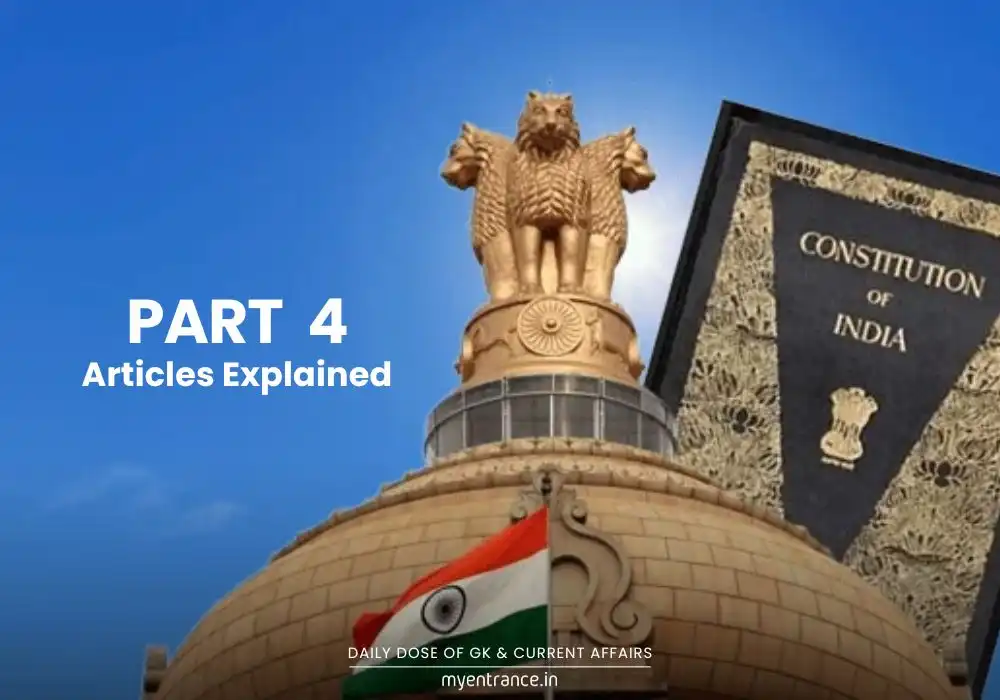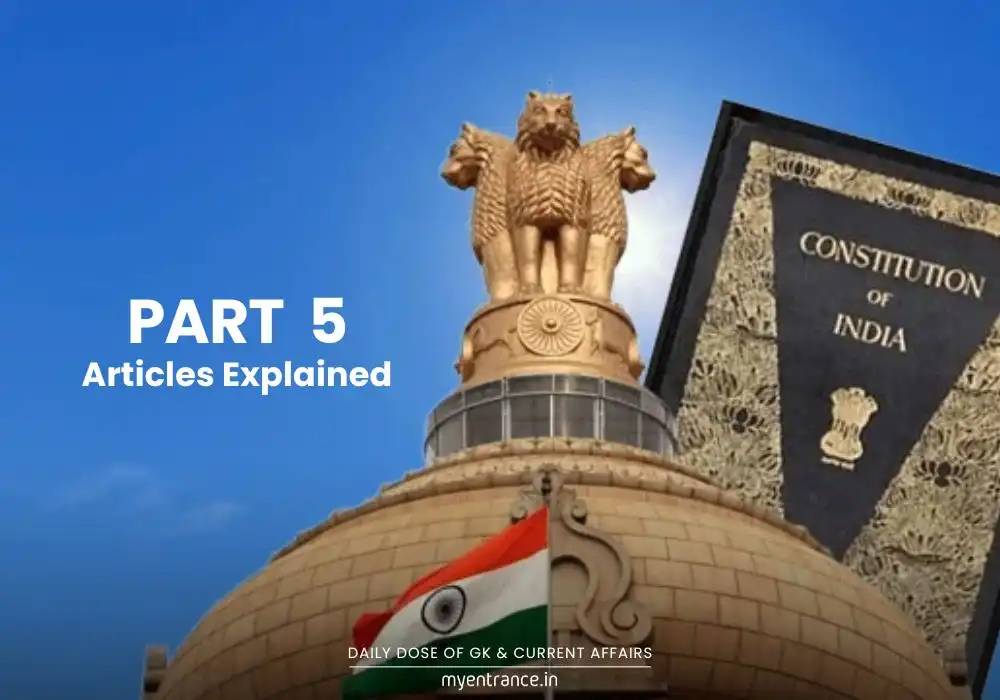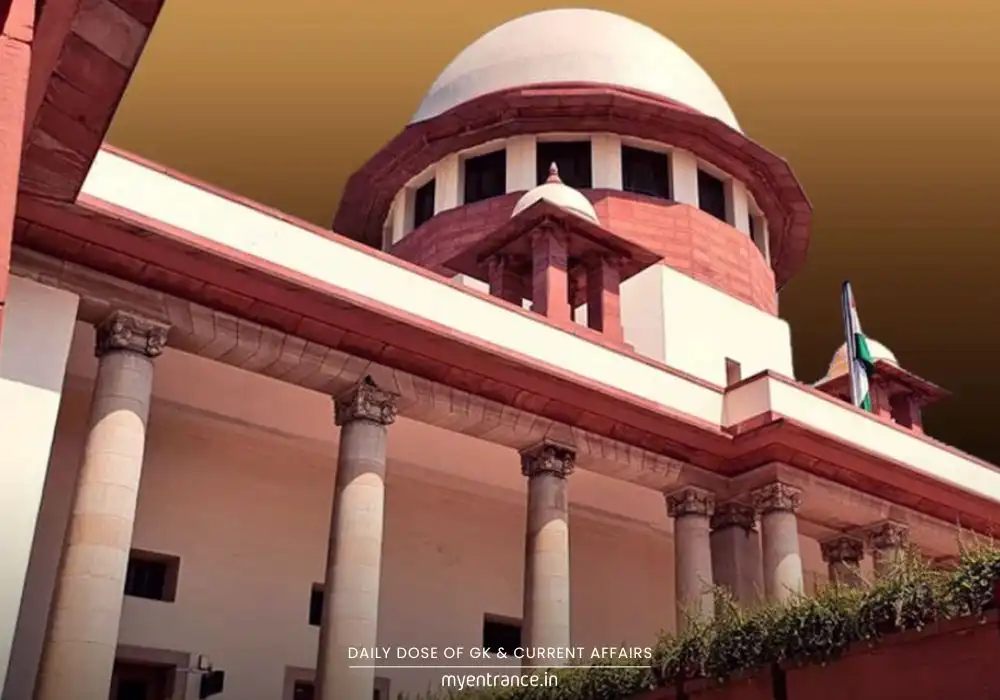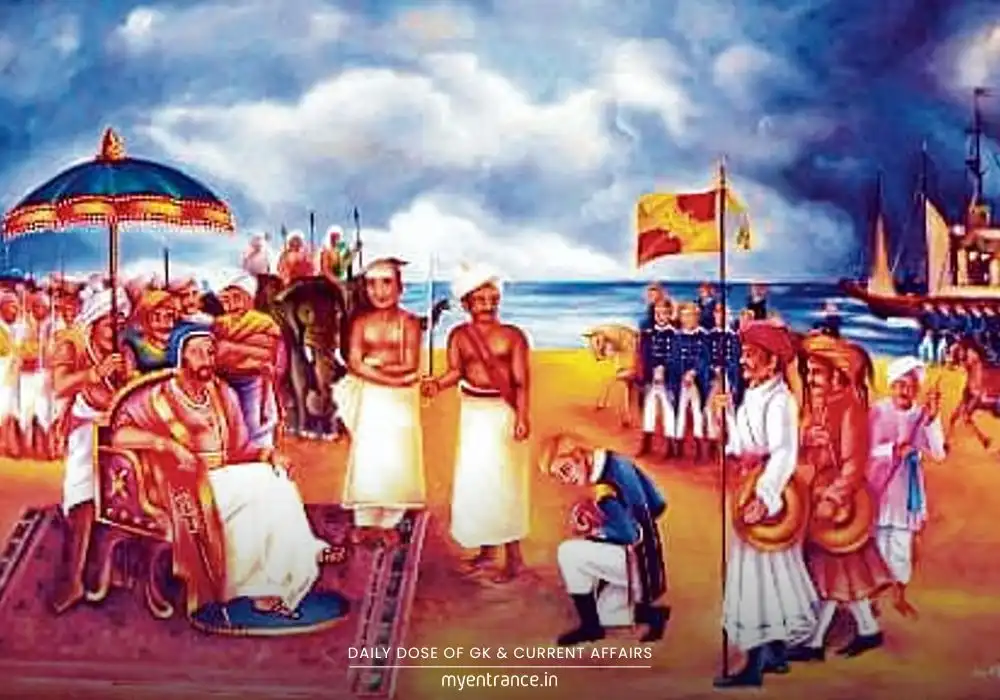Translate Language
A Complete Guide to Part 4 of Indian Constitution: Directive Principles of State Policy (DPSP)
The Directive Principles of State Policy (DPSP) in Part IV of the Indian Constitution (Articles 36-51) serve as crucial guidelines for governance, aiming to establish social and economic democracy. Though not legally enforceable, they shape policies for a just society. For competitive exam aspirants, understanding DPSP is essential as it frequently appears in UPSC, SSC, PSC, and other government exams.

Part IV of the Indian Constitution: Directive Principles of State Policy (DPSP)
The Directive Principles of State Policy (DPSP) are fundamental principles enshrined in Part IV (Articles 36-51) of the Indian Constitution. Inspired by the Irish Constitution, these principles guide the government in policymaking to achieve social welfare, economic justice, and equitable development.
Key Articles of DPSP Explained:
Article 36: Defines the term “State” (same as in Fundamental Rights).
Article 37: States that DPSP are not enforceable by courts but are fundamental in governance.
Article 38: Mandates the State to promote social, economic, and political justice.
Article 39: Lists key principles like:
Equal pay for equal work.
Prevention of wealth concentration.
Protection of workers and children.
Article 39A: Ensures free legal aid for justice accessibility.
Article 40: Encourages village panchayats for self-governance.
Article 41: Guarantees right to work, education, and public assistance.
Article 42: Ensures humane working conditions and maternity benefits.
Article 43: Promotes living wages and decent working conditions.
Article 43A: Encourages worker participation in industry management.
Article 43B: Supports co-operative societies.
Article 44: Advocates for a Uniform Civil Code.
Article 45: Focuses on early childhood care and education (now a Fundamental Right under Article 21A).
Article 46: Protects educational and economic interests of SCs, STs, and weaker sections.
Article 47: Emphasizes public health, nutrition, and prohibition of intoxicants.
Article 48: Promotes modern agriculture and animal husbandry.
Article 48A: Ensures environmental protection and wildlife conservation.
Article 49: Protects historical monuments and national heritage sites.
Article 50: Calls for separation of judiciary from executive.
Article 51: Encourages international peace and security.
Why is DPSP Important for Competitive Exams?
Frequently Asked in UPSC, SSC, PSC: Questions on DPSP appear in prelims and mains.
Comparison with Fundamental Rights: Often asked in essays and descriptive answers.
Policy Implementation: Many government schemes (e.g., MGNREGA, Mid-Day Meal) are based on DPSP.
Legal & Constitutional Awareness: Helps in understanding India’s governance framework.
Current Relevance: Environmental protection (Art. 48A), Uniform Civil Code (Art. 44) are hot topics.
Questions & Answers for Competitive Exams
Q1. Which part of the Indian Constitution contains the Directive Principles of State Policy?
Ans: Part IV (Articles 36-51).
Q2. Are Directive Principles legally enforceable?
Ans: No, they are non-justiciable (Article 37).
Q3. Which article promotes a Uniform Civil Code?
Ans: Article 44.
Q4. Name one DPSP that has been made a Fundamental Right later.
Ans: Article 45 (Early childhood education) was incorporated into Article 21A (Right to Education).
Q5. Which DPSP is related to environmental protection?
Ans: Article 48A (Protection of environment and wildlife).
Understanding Part IV of the Indian Constitution (DPSP) is crucial for competitive exams as it forms the basis of many government policies. Regular revision, linking DPSP with current affairs, and practicing MCQs will boost your preparation.
For more exam tips and mock tests, visit MyEntrance.in!
Get 3 Months Free Access for SSC, PSC, NIFT & NID
Boost your exam prep!
Use offer code WELCOME28 to get 3 months free subscription. Start preparing today!















